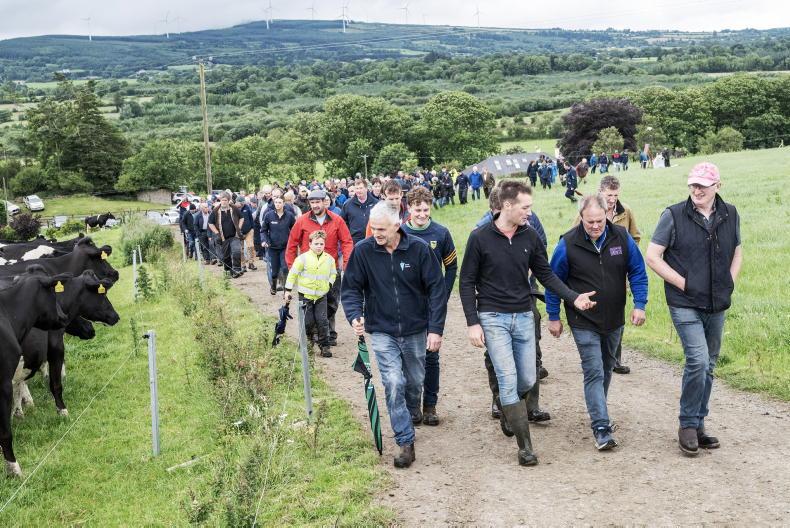Any delay in taking action to reduce global warming will have “significant, far-reaching and long-term impacts which will particularly affect younger generations,” Marie Donnelly, chair of the Climate Change Advisory Council (CCAC) has said.
The CCAC advises the Irish Government on climate policy.
“Children born today will experience a very different climate during their lifetimes compared to those of previous generations. The costs of global inaction or delay will include irreversible impacts such as extinction of species, increases in drought and floods, and loss of coastline,” Donnelly said. “Ireland is not immune to these impacts. If we are to address these era-defining issues, locally and globally, Ireland must act in tandem with international partners,” she warned.
Donnelly said she is concerned that a significant acceleration of existing and planned actions is required for Ireland to achieve its legally binding targets in full and on time.
“There is an urgent need to decarbonise our economy and society through climate change mitigation, while taking account of impacts on the economy, society and environment while ensuring a just transition,” she said.
Laura Burke, director general of the Environmental Protection Agency (EPA), described the IPCC findings as “clear, stark and challenging”.
“They reinforce the urgent need for action to reduce greenhouse gas emissions while adapting to the current and future impacts of climate change.”
UN calls for fast-tracking of net-zero target
The United Nations has proposed that G20 countries – which includes Ireland as an EU member state – should fast-track its target of net carbon zero.
UN secretary general António Guterres proposed an Acceleration Agenda, which would see developed countries commit to reaching net zero as close as possible to 2040 (10 years earlier than the current target) and developing countries as close as possible to 2050.
A recent EPA-funded report found in order to reach net zero emissions, Ireland would have to cut livestock numbers by 30%, and rewet 90% of drained peatlands.
In addition, annual forestry plantings would have to increase to nearly 35,000ha.
The UN’s proposed agenda also calls for an end to coal and net-zero electricity generation by 2035 for all developed countries and 2040 for the rest of the world.
It also calls for a stop to all licensing or funding of new oil and gas, and any expansion of existing oil and gas reserves.
Read more
Urgent climate action needed now – IPCC report
Any delay in taking action to reduce global warming will have “significant, far-reaching and long-term impacts which will particularly affect younger generations,” Marie Donnelly, chair of the Climate Change Advisory Council (CCAC) has said.
The CCAC advises the Irish Government on climate policy.
“Children born today will experience a very different climate during their lifetimes compared to those of previous generations. The costs of global inaction or delay will include irreversible impacts such as extinction of species, increases in drought and floods, and loss of coastline,” Donnelly said. “Ireland is not immune to these impacts. If we are to address these era-defining issues, locally and globally, Ireland must act in tandem with international partners,” she warned.
Donnelly said she is concerned that a significant acceleration of existing and planned actions is required for Ireland to achieve its legally binding targets in full and on time.
“There is an urgent need to decarbonise our economy and society through climate change mitigation, while taking account of impacts on the economy, society and environment while ensuring a just transition,” she said.
Laura Burke, director general of the Environmental Protection Agency (EPA), described the IPCC findings as “clear, stark and challenging”.
“They reinforce the urgent need for action to reduce greenhouse gas emissions while adapting to the current and future impacts of climate change.”
UN calls for fast-tracking of net-zero target
The United Nations has proposed that G20 countries – which includes Ireland as an EU member state – should fast-track its target of net carbon zero.
UN secretary general António Guterres proposed an Acceleration Agenda, which would see developed countries commit to reaching net zero as close as possible to 2040 (10 years earlier than the current target) and developing countries as close as possible to 2050.
A recent EPA-funded report found in order to reach net zero emissions, Ireland would have to cut livestock numbers by 30%, and rewet 90% of drained peatlands.
In addition, annual forestry plantings would have to increase to nearly 35,000ha.
The UN’s proposed agenda also calls for an end to coal and net-zero electricity generation by 2035 for all developed countries and 2040 for the rest of the world.
It also calls for a stop to all licensing or funding of new oil and gas, and any expansion of existing oil and gas reserves.
Read more
Urgent climate action needed now – IPCC report









SHARING OPTIONS